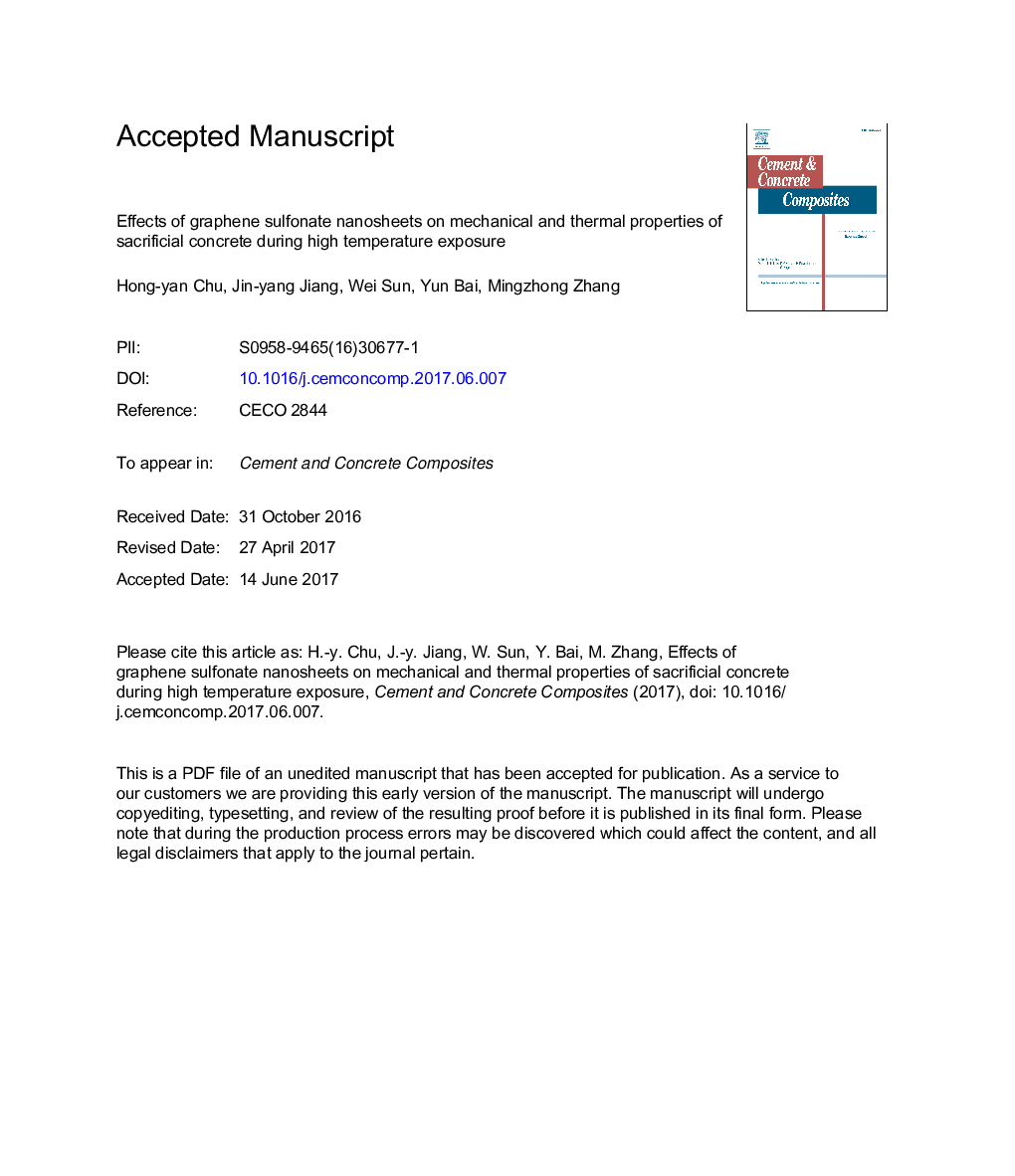| Article ID | Journal | Published Year | Pages | File Type |
|---|---|---|---|---|
| 5436791 | Cement and Concrete Composites | 2017 | 51 Pages |
Abstract
Using nanomaterials is a new method to improve concrete material, and graphene or its derivatives are currently the most attractive nanomaterials. This paper aims to experimentally evaluate the effects of graphene sulfonate nanosheets (GSNSs) on physical, mechanical, and thermal properties of sacrificial concrete. The microstructure, porosity, compressive strength, thermal analysis, coefficient of thermal expansion, thermal diffusivity and ablation behaviour of sacrificial concrete with different contents of GSNSs before and during exposure to various temperatures up to 1000 °C were comprehensively investigated. A new experimental apparatus was proposed and used to measure the compressive strength of sacrificial concrete during elevated temperature exposure. It was found that, (1) the compressive strength, thermal diffusivity, and decomposition enthalpy of sacrificial concrete increased by 10.14-23.11%, 6.51-27.66%, and 7.48%, respectively, when adding 0.1 wt% GSNSs; (2) the porosity and ablation velocity of sacrificial concrete reduced by 2.00-6.00% and 7.48%, respectively, due to the incorporation of GSNSs.
Related Topics
Physical Sciences and Engineering
Engineering
Industrial and Manufacturing Engineering
Authors
Hong-yan Chu, Jin-yang Jiang, Wei Sun, Mingzhong Zhang,
